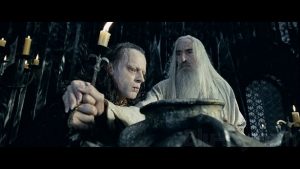
© Sort Of Books
I’ve just realised that over the past year or so I’ve coincidentally read five novels that were winners of Britain’s most prestigious literary award, the Booker Prize. The first four I read are as follows, ranked in descending order of greatness:
- Very good: Shuggie Bain by Douglas Stuart, which won the Booker in 2020. Inevitably, being about alcoholism, betrayal and homophobia in economically-ravaged, 1980s Glasgow, it’s a tough read. One thing I found oddly depressing about it is how it reminded me of a time, not so long ago, when everyone from 15 years upwards seemed to have dentures.
- Good: The Testaments by Margaret Atwood, joint-winner in 2019. Atwood is always decent value, but this follow-up to 1985’s The Handmaid’s Tale doesn’t quite have the same punch. Partly this is because, as a sequel, it’s less ideas-driven than the original. Partly it’s because The Testaments dares to have a happy ending. But it’s certainly interesting to see Aunt Lydia get a redemptive arc.
- Okay: The Luminaries by Eleanor Catton, winner in 2013. Parts of this 19th-century, New Zealand-set murder mystery were engrossing, but with 832 pages and what felt like a cast of thousands – well, dozens – my interest was inevitably going to flag in places. Still, kudos to Catton for constructing a novel that’s positively Dickensian in its size and ambition.
- Tedious bollocks: The Old Devils by Kingsley Amis, winner in 1986. Geriatric, right-wing Welsh windbags make fools of themselves in a gentrified version of 1980s Wales that I suspect only ever existed in Kingsley Amis’s imagination.
But for me the best of the lot was The Seven Moons of Maali Almeida by Sri Lankan writer Shehan Karunatilaka, which netted the Booker in 2022 and which I finished reading the other day. No doubt I’m biased and have an advantage when it comes to this novel. It’s set in Colombo and I lived in that city for eight years myself, which makes me familiar with much of the book’s geography, cultural references and historical context, to say nothing of the cynical and self-deprecating Sri Lankan humour that pervades its pages. That sense of humour, by the way, is one of the things I now miss most about the place.
But even if you’re not acquainted with Sri Lanka when you open the book, I suspect you’ll be impressed by Seven Moons – at least, if you give it a chance to draw you in. Karunatilaka’s work veers from the exuberantly fantastical to the grimly realistic, from the hilarious to the horrific, from the vauntingly highbrow to the cheerfully lowbrow, from the sublime to the ridiculous, sometimes within the space of one page.
The novel takes place in the late 1980s and begins with titular character Maali Almeida experiencing the end of his physical existence, as a human, and the start of his ephemeral existence, as a ghost. He finds himself in a weird, netherworld version of Colombo, where he can see, but not interact with, the living, but where ghosts and other supernatural beings mill about too – the more adept of them have mastered the neat trick of travelling around on the winds. The spectral bureaucracy that processes the newly deceased urges him to continue onto the proper afterlife, which is only open to him for the next seven nights, or seven moons, of his passing.
But Maali is more concerned with hanging around and finding out the details of his death. Suffering from a sort of Post-Death Stress Disorder, he can’t remember how it happened. As he was a war photographer when he was alive – 1980s Sri Lanka being in the throes of civil war – it’s likely he was murdered. And the reason for his murder was likely some sensitive photographs he took that could have serious consequences for one of the country’s top politicians.
Half-murder-mystery, half-phantasmagorical-adventure, the story rattles along with Maali trying to overcome his limitations as a ghost and find a way of communicating with the two people he was closest to when he was alive, his ‘official’ girlfriend Jaki and his ‘unofficial’ boyfriend DD – Maali was a gay man in a time and place where it was probably safer to stay closeted – with the ultimate aim of solving the mystery of his death and securing the important photographs.
Along the way, he encounters all manner of eccentrics, misfits and miscreants. In the living world, there are crooked politicians, crooked policemen, dodgy NGO workers, dodgy journalists, arms dealers, torturers, ‘garbage collectors’ (the goons who dispose of the bodies of those eliminated during the government’s dirty war against real and imagined dissent) and an unhelpful clairvoyant called the Crow Man. In the ethereal world, there are ghosts, ghouls and yakas (demons from Sri Lankan mythology), including one embittered spirit, a murdered Marxist called Sena, who’s assembling an army of the dead whilst trying to figure out a way, intangible though he is, of violently striking back at his still-living tormentors and executioners.

From wikipedia.org / © Deshan Tennekoon
Seven Moons‘s allegory about the victim of a senseless war trying to make sense of it on the other side, as a ghost, could come across as heavy-handed. But Karunatilaka invests the fantastical elements of his narrative with the exactly the right amounts of absurdity and bemusement. It’s no surprise that he lists Douglas Adams and Kurt Vonnegut in the book’s acknowledgements. Again, the humour has a distinctly local flavour. For example, the celestial sorting office where Maali, deceased, finds himself at the beginning is conceptually like something from Michael Powell and Emric Pressburger’s classic movie A Matter of Life and Death (1945), but its chaotic nature feels pretty Sri Lankan. Anyone who’s ever tried to get their EPF (Employees’ Provident Fund) from the Department of Labour off Kirula Road will understand.
Meanwhile, a famous quote by legendary science-fiction author and long-term Sri Lankan resident Arthur C. Clarke could be the blueprint for Karunatilaka’s vision of Colombo, overrun with the souls of the dead: “Behind every man now alive stand thirty ghosts, for that is the ratio by which the dead outnumber the living.” In the midst of the spectral mayhem, Maali refers to Clarke’s quote and adds, “You look around you and fear the great man’s estimate might have been conservative.”
At the same time, the fantasy in no way diminishes the book’s accounts of the horrors perpetrated during the Sri Lankan Civil War. This was when the government wasn’t locked in a struggle just with the LTTE, the Liberation Tigers of Tamil Eelam, who wanted a separate Tamil state but were “prepared to slaughter Tamil civilians and moderates to achieve this”, but also with the JVP, the Janatha Vimukthi Peramuna, who wanted “to overthrow the capitalist state” but were “willing to murder the working class while they liberate them.” These organisations and others – including the STF, the Special Task Force, the government’s abduction, torture and execution squad – are listed and described in a passage near the beginning, for the benefit of readers unfamiliar with the country back then. It comes with the advice: “Don’t try and look for the good guys ‘cause there ain’t none.”
In one interview, Karunatilaka observed that bleak though things have been in Sri Lanka during its recent economic crisis, brought about by the corrupt and idiotic mismanagement of the Rajapaksa regime, the situation doesn’t come close to how it was in the war-torn 1980s. “I’ve no doubt many novels will be penned against Sri Lanka’s protests, petrol queues and fleeing Presidents. But even though there have been scattered incidents of violence, today’s economic hardship cannot be compared to the terror of 1989 or the horror of the 1983 anti-Tamil pogroms. We all pray it stays that way.”
One other thing I enjoyed about Seven Moons is how it captures the odd, hybrid culture that young people in 1980s Colombo must have inhabited – at least, the more affluent, English-speaking ones, of whom Maali is an example. Mixed in with the Sri Lankan cultural references are the expected ones from America – Elvis Presley is prominent and Maali seems to have a hankering for Ridley Scott’s Blade Runner (1982). Of course, looming over the whole novel is the shadow of that most 1980s-feeling of Hollywood movies, the Demi Moore / Patrick Swayze schmaltz-a-thon Ghost. (Though I’ve just checked and discovered it wasn’t a 1980s movie. It came out in 1990.)
British culture – due no doubt to the colonial connection – gets a look-in too, with mentions of Yorkshire Television’s durable lunchtime legal-drama show Crown Court (1972-84), the BBC’s rickety but impressively downbeat space opera Blake’s Seven (1977-81) and cheesy but popular Welsh retro-rocker Shakin’ Stevens.
But most amusing is Maali’s love of bombastic British rock-pop band Queen and their flamboyant singer, the late Freddie Mercury. I found it hilarious that – watch out, spoilers approaching! – one of the plot’s main MacGuffins turns out to have been concealed inside the sleeve of Queen’s universally derided 1982 album Hot Space. It’s the perfect hiding place. Because no one in their right mind would ever dream of opening the sleeve of Hot Space.

© EMI / Elektra







